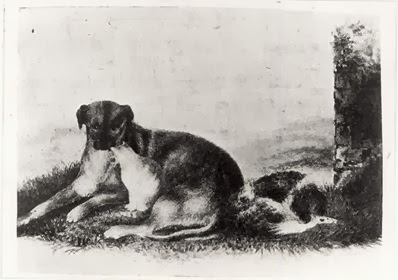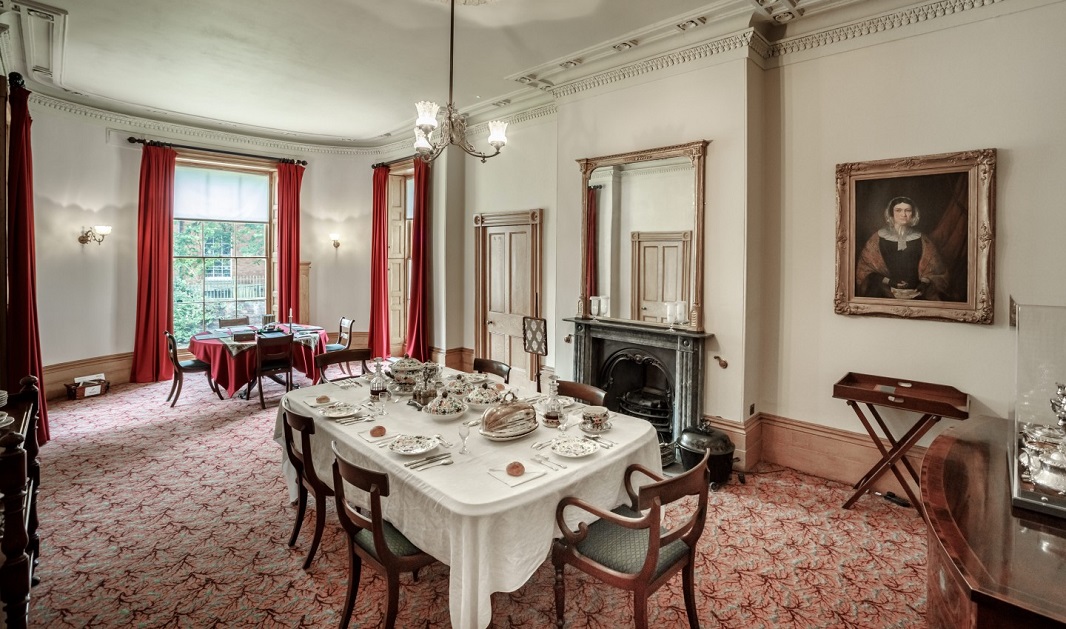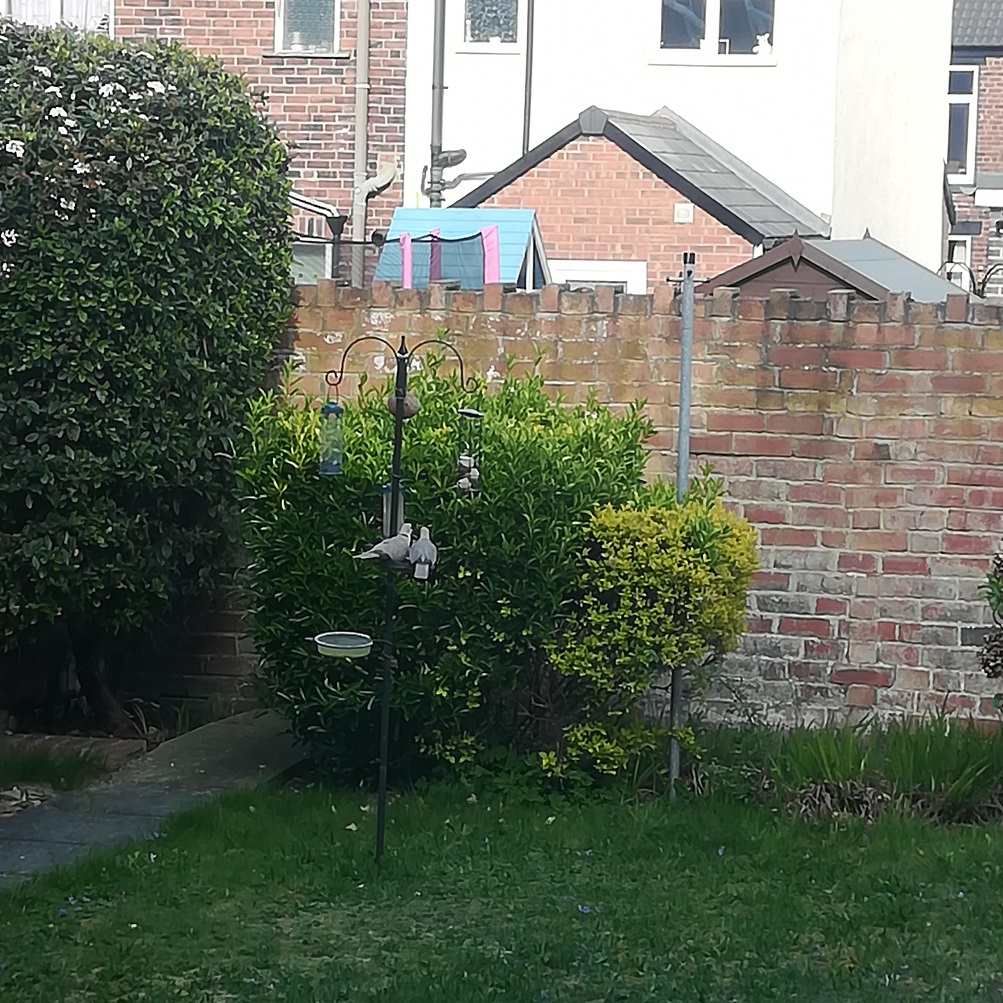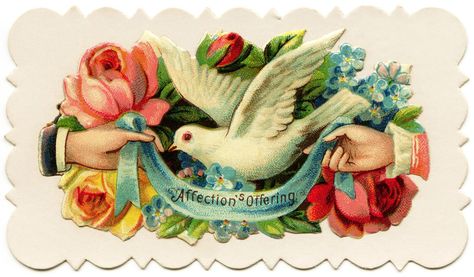Here in Yorkshire we are into our fourth week of lockdown, isolation and social distancing. Some of us are literally home alone, some have family with them, but all of us face the challenge that comes from being thrown suddenly and inescapably into a way of life which had been alien. How can we cope with it, and how would the Brontës have coped with it?
There is one Brontë we can surely say would have breezed through any period of isolation – Emily Brontë. All of the Brontë family were reserved, but Emily took that shyness to extremes. After the death of Aunt Branwell in 1842, Emily took on the role as housekeeper at Haworth Parsonage and became increasingly reclusive, finding all the company she needed in the things she loved most – her family (especially Anne), her poetry, and her pets. As long as she could take her daily exercise on the moors that she adored, Emily would be contented and happy.

Emily would have been a great person to be isolated with too, as while she is now rightly renowned for her genius as a writer she was acclaimed at the time, by those who knew her, for her excellent baking skills. Elizabeth Gaskell, doubtless reporting what Charlotte had told her, writes:
‘It was Emily who made all the bread for the family; and anyone passing by the kitchen-door, might have seen her studying German out of an open book, propped up before her, as she kneaded the dough; but no study, however interesting, interfered with the goodness of the bread, which was always light and excellent.’
Charlotte Brontë was much more gregarious than Emily, especially in her later years when she entered more into society to combat her loneliness after the loss of her sisters. Even Charlotte, however, could suffer from extreme shyness, most evident in the moment when she took refuge behind Elizabeth Gaskell’s curtains rather than meet a stranger who had arrived unexpectedly. We also read in Charlotte’s own letters of how she could become irritable when people created noise and untidiness at the parsonage, even when they were visiting members of the clergy. A break from the hubbub and bustle of everyday life would not, then, have been unwelcomed by Charlotte.

Now we turn to Anne Brontë. Like her elder sisters, Anne was an introvert by nature, but she showed in her successful years as governess to the Robinson family that she could overcome her shyness and function well in society. To Anne, you could be alone in an empty house or alone in a crowded room, for what truly mattered was having someone to care for, or someone precious to you to hold in your heart. If you had that, even if it was just a memory to recall, you could never truly be lonely. We find this sentiment expressed most beautifully in Anne’s poem ‘The Captive Dove’:
“Poor restless dove, I pity thee;
And when I hear thy plaintive moan,
I mourn for thy captivity,
And in thy woes forget mine own.
To see thee stand prepared to fly,
And flap those useless wings of thine,
And gaze into the distant sky,
Would melt a harder heart than mine.
In vain – in vain! Thou canst not rise
Thy prison roof confines thee there;
Its slender wires delude thine eyes,
And quench thy longings with despair.
Oh, thou wert made to wander free
In sunny mead and shady grove,
And far beyond the rolling sea,
In distant climes, at will to rove!
Yet, hadst thou but one gentle mate
Thy little drooping heart to cheer,
And share with thee thy captive state,
Thou couldst be happy even there.
Yes, even there, if, listening by,
One faithful dear companion stood,
While gazing on her full bright eye,
Thou might’st forget thy native wood.
But thou, poor solitary dove,
Must make, unheard, thy joyless moan;
The heart that Nature formed to love
Must pine, neglected, and alone.”
I think we can all feel a little like that captive dove at the moment, imprisoned not in a cage but in the four walls of our own home. And yet we all have the capacity to soar too, like the dove roaming its native wood. One of the greatest ways to cope with lockdown, of course, is to embrace the cultural treasures we love – whether that be reading a Brontë book, listening to the music we love, or watching a favourite television show. As Anne has shown in this poem, however, what truly gives us freedom is the beauty and power of nature.

Connecting with nature makes the heart and soul soar, even when our bodies are stuck indoors. I love looking out at my bird feeder, and everyday it’s visited by a pair of love doves, free and happy whatever occurs in the outside world. We can take a lesson from them, and from Anne’s poem; let’s look out at our gardens, smell the flowers coming into bloom now, or take a daily walk in nearby countryside. As the Brontës knew very well, there’s a timeless magic in the natural world, and it can cast the perfect spell to lift the gloom of isolation and social distancing.
I hope you and your loved ones are all happy and healthy, and that you can join me next Sunday for another new Anne Brontë post.

Thanks Nick. I look forward to reading your blog every week. Anne’s poem that you included is uplifting and insightful.
Very enjoyable blog — appropriate for this time of trouble.
Oh my, Anne’s poem of the captive dove is so beautiful and appreciated as I am alone too like that bird – though with my darling Dazzle puppy Bordoodle. I resonate entirely with Emily’s nature, yet truly love the tenderness of Anne’s. Fabulous dichotomy in this post through these shifting sands of time. Thanks again Nick.
Thank you for these heartwarming words. They made me feel better. I‘m reading your great book Anne Bronte at 200, it‘s wonderful. Have a great week!
Thank you so much Christine – I’m glad that my posts are helping raise you spirits, and that you’re enjoying my latest Anne Bronte book! Stay healthy and have a good week!
What a wonderful poem! I hadn’t read that one before. There are two doves who made their nest in my yard. I love to watch them.
I hadn’t thought of this isolation as similar to how the Brontë’s lived, but it is very true. I mostly read, write, and go for walks these days. Although I’m still working.
Thank you for your wonderful, uplifting post!
Thank you very much for your lovely comments